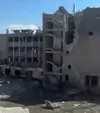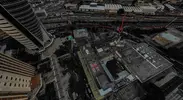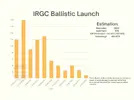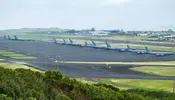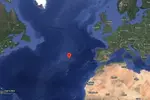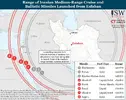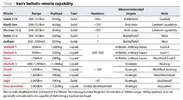Zohar Palti, former Head of the Mossad Intelligence Directorate and former Head of the Political-Security Bureau at Israel’s Ministry of Defense, was interviewed earlier today on
@NadavPerry’s podcast.
He analyzed the current Israel-Iran war:
"We sometimes forget that Iran is a huge country with a population of 90 million, and size of more than 70 times the size of Israel. It has two armies: a regular military and the Revolutionary Guards, and both are enormous.
We’re impressed that a third Iranian chief of staff within a week is now giving the orders (after two successful eliminations), but we forget what it means to fight a state with true strategic depth and an industry that can keep producing under sanctions.
For the past fifty years Israel has fought plenty, but always against organizations - never against a state.
For years we assumed a strike on Iran would play out like the attacks on the nuclear reactors in Syria and Iraq: we fly in, bomb once, maybe come back a second time, and go home.
That’s why the real headline here is what the Israeli Air Force has done in the first 48 hours of this war. It is historically astounding.
The Air Force has wiped the airspace clean of every SAM battery, and the fact that it can carry out dozens and hundreds of sorties, returning again and again, is amazing.
Never mind the aerial refueling and the logistics, what stuns me is that our pilots are flying freely over Iran, 1,500 kilometers from home. There was no scenario I ever heard, even in closed-door discussions, where we thought we could do something like this.
I’ve said before that people don’t truly appreciate the real capabilities of the Israeli Air Force. I think this is the first time we are actually seeing what it can do.
While the operation is ongoing, I don’t think we should over-debate it for now. In the end we’re Israelis; after the war we’ll pick everything apart and drive each other crazy over every detail - what went right and what went wrong?
Strategically, though, I believe the decision to launch this move was absolutely correct. How exactly to carry it out, how far to go, what to nail down with the Americans and Europeans - those are different questions.
Anyone in the security profession learns over time that force always has limits. Sometimes the limit is fuel, sometimes manpower, sometimes a million other things. Here the question will be: when do we declare the mission accomplished?
There’s a huge temptation to lose balance and say “let’s keep going,” but we have to ask whether the delta between what we gain in the first few days and what we’d gain later is really significant.
There’s another caveat: we’re not the only side here. The other side, Iran, also has to accept a cease-fire; just because we say we’ve won doesn’t mean they’re there too, so this could run longer.
That means we also need the United States and the E3 powers: Germany, France, and the UK, because any agreement in the end will have to be signed with the major powers.
I suggest we delay the discussion about what we have achieved so far and how much we’ve prevented Iran from reaching a bomb. There’s a range of possibilities I won’t detail. What matters is we’ve shown everyone we know how to do it - and if we must, we’ll do it again.
As for Iran’s sprint toward a bomb, I listen carefully to the Americans, especially President Trump, who keeps repeating that he will not allow Iran to be nuclear.
Trump can play games about whether he wants to strike right now, but he always comes back to the same message: “I will not let you get the bomb.”
We talk a lot about the Iranian nukes, but we should also see this strike in the context of October 7th. That day was a massive earthquake, with aftershocks in Lebanon and Syria.
Strategically, if you set the nuclear issue aside for a moment, only one big link remained to be dealt with: Iran itself. Even separate from the nuclear program, our action in Iran is crucial because it changes the entire regional picture.
Iran is the octopus’s head; it makes no sense to dismantle all its proxies yet leave Tehran untouched.
The capabilities we’re seeing now are the result of many years of work. There are a lot of good people whose job is to plan this sort of thing far ahead. These are extremely precise plans combining strategic and tactical thinking.
The question is how you coordinate everything so that all the “decapitations” you want converge on exactly the same hour. It’s truly insane.
On the other hand, in the end what matters is not how sexy an operation looks, but whether it delivers results and makes your enemy realize he needs to step back. How, ultimately, can you protect Israel’s citizens?
And we must remember -especially because of the euphoria following the success- that we will still take hits, as we did this morning in Soroka Hospital. I keep restraining myself and reminding myself that tough days might still be ahead.
People ask if we’ve put Iran in checkmate; I remind them that they invented chess. Let’s not underestimate them. Iran runs marathons: for forty years they’ve pursued this nuclear project.
They’re serious. I’m happy to give credit for this operation, as much as I’m glad we pulled off the Hezbollah campaign within six weeks. After years of preparation, it’s amazing to take down those bad guys. But let’s wait and see that it ends properly before we celebrate.
Regarding Iran’s ability to mount a bomb on a missile—our intelligence picture is shifting before our eyes. I can speak about what I knew until the war began, but it will take time before we receive intelligence and perform BDA (battle-damage assessment).
We need to see what happened at Natanz, what will happen at Fordow, what became of the knowledge hubs that vanished, where the 60 percent-enriched uranium now is.
I have a ton of questions. We can’t truly answer the nuclear issue right now. We will also have to make some very tough decisions - ones I won’t even outline so as not to give ideas, but this is a super-complex event.
What is certain is that several strategic questions need addressing now:
*First, the Iranian decision*. The Supreme Leader is at a crucial crossroads. Does he “drink the cup of poison,” enter a back channel with the Americans, and reach a cease-fire, or does he keep going and risk losing his regime? We don’t know what he’ll decide.
Intelligence has no real way to gauge this. There’s a lot of wishful thinking we must beware of - especially since managing this without the Americans directly involved is very hard. Ultimately the leader must choose whether to wrap up or press on.
*Second, the international community*. Some in Israel claim Europe isn’t important to us; that’s wrong. Europe matters - for trade, and because we want to stand with the democratic Western world.
Even if we disagree over the Palestinian issue, we share many values, and in any future resolution we want the Europeans on our side.
We also got a tremendous boost for our defense industries, including many small startups you don’t know, and of course the three giants: Israel Aerospace Industries, Elbit, and Rafael, each with more than 5,000 engineers.
Israel must keep nurturing this and improve in AI, where we’re not yet good enough. The state hasn’t invested enough over the past year and a half in AI. Someone needs to step up and fund it, the way the Israeli cyber industry was built.
And the last person who needs that explained is the Prime Minister, who played a major role in Israel’s cyber revolution. AI is going to be the world’s biggest revolution, and right now we’re not there, but we must be at the top.
I think the operation in Iran gives us a big opportunity to bring our hostages home. Strategically, we now have the chance to close both the Iran and Gaza files together.
This has to be the final event of the October 7th war. We’ll bring our people back and seal this open wound.
Beyond that, we’re opening the door to a Middle East that could look completely different. Our intensive focus on Iran -something we feared for years- might recede.
Also Hezbollah’s 150k rockets are no longer the threat they once were; and Hamas’s capabilities have been cut to a fraction of pre-October 7 levels. It’ll take time for everything to calm down, but the most important thing now is to bring in the Saudis.
Right now they’re wary and say they won’t reach an agreement while the Gaza war continues, but once this is over they’ll ask: do I want Israel - with all its tech, AI, and Arrow-3 to be my partner or not? I believe the answer will be yes.
That could be an enormous economic boost, and we need leadership with vision that won’t be afraid. Ultimately this whole event funnels down to two or three people at Israel’s leadership who must decide how to steer it.
They need to avoid euphoria and realize that getting the Saudis on board is as crucial as anything else. Why? Because SA would be the last large state in the Middle East to have peace with us - and they would also bring in Indonesia, a country of 270 million Muslims.
If that happens, there’s a chance that over the next 20-30 years we’ll live far more quietly and prosperously. If these are the war’s outcomes, we could tell people: we paid a terrible price on October 7, but we’re also giving Israelis a positive horizon.
We shouldn’t say “we’re taking Iran out of the equation.” We don’t know who will succeed the current leader - he could be more moderate or more extreme. We have no control over such events and must stay sober.
Tomorrow morning everything could change and Iran could become a democracy - but our working assumption must be that it won’t, and at most we’ll be pleasantly surprised. The same goes for Syria - we don’t yet know which way al-Jolani will go.
We must remain clear-eyed, keep the IDF strong, and always look for opportunities to move forward, just as we’ve developed the country over the past 77 years.
Regarding Fordow - it would be better if the Americans strike there. They truly have the capacity to make the place “evaporate,” and I chose that word deliberately. Their capabilities are beyond belief, and they have assets we simply don’t.
The issue with the Americans is they tend not to use those capabilities. Despite everything Iran has done -killing U.S. forces in Afghanistan, Iraq, Lebanon- the Americans have never struck inside Iran.
An Iranian living in Tehran hasn’t experienced bombing since 1988; this is the first time they look up and see F-35s or F-16s.
And let’s remember: when the Americans invaded Iraq in 2003, Iran froze its nuclear program purely out of fear that the U.S. would continue on to them. If there’s one thing Iranians fear, it’s the Americans.
About closing the Strait of Hormuz - it’s noteworthy that oil prices haven’t risen too much during the current war, and some say that even if they did, the Americans wouldn’t worry as much because they produce so much of their own oil.
I even heard a very serious U.S. analyst say this week: “You know what? I’m not sure it wouldn’t be in our interest if Iran tried that”. I don’t know if he’s right, but clearly it isn’t the factor it was a few years ago.
On the other hand, President Trump truly dislikes wars; he speaks plainly about that. We Israelis think, “So what’s the problem - let a single B-2 take off from the U.S. and strike”, but the Americans don’t see it that way.
They always think about contingency plans for various scenarios - how will it affect their bases, the Gulf states, Jordan?
The Gulf states also want, like us, to hurt Iran and go all the way, but at the same time - they are very afraid. Iran’s missiles can cover Bahrain in a minute and a half, and the Saudis still carry the trauma of the 2019 Aramco strikes by Iranian-directed Houthis.
This attack slashed 50 percent of Saudi output within two hours. Even if they rebuilt, the trauma remains, and they’ve seen the pictures of ballistic-missile damage in Israel; they don’t have our staying power after the last twenty years. I don’t judge them for that.
If you want to listen to the full conversation (in Hebrew), you can do it here:
LINKKI Youtube-videoon
 www.verkkouutiset.fi
www.verkkouutiset.fi

